Despite Australia’s huge advantages in international rugby league, the key player on the international scene still has no qualms about effectively rigging international contests to assist in maintaining its hegemony in the rugby league world.
Ironically, one of the weapons recently used by Australian rugby league in this regard, isolation, has currently hamstrung its position in international rugby league ratings. At the time of writing, New Zealand was the number one nation in rugby league according to the latest International Rugby League (IRL) Standings.
This was largely caused by two issues being isolation (the scarcity of games played by Australia since the last World Cup in 2017) and Australia’s remarkable loss to the rising force of Tonga in 2019.
Australia has misused its power in the game to leverage winning results contrary to the best interests of international rugby league and the game as a whole for many years now. This is something which a strong IRL would stand up to and prevent.
Regrettably, the international body lacks the strength and resources to do much against the more financially robust Australian rugby league (particularly the NRL). The IRL does, however, have the power to ban players or nations from future international competitions, including World Cups, and frankly this should be given strong consideration if Australia does not participate at full strength in the 2021 tournament.
It's hard to imagine another national team outside of the insular United States market in world sport that so actively works against the sport’s interests. Brazil, the dominant team in soccer’s World Cup since the tournament’s formation in 1930, does not seek to damage and inconvenience the very tournament in which it has excelled and brought such pride to its nation and people.
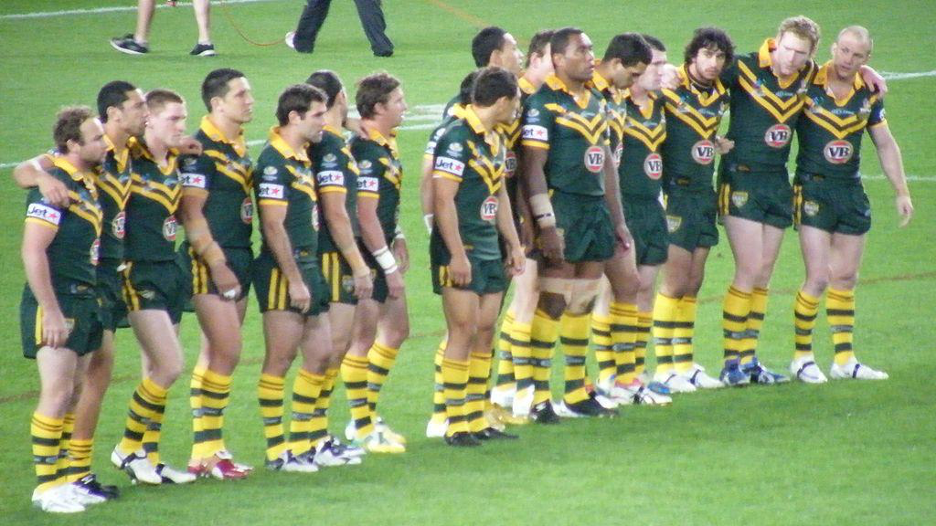
There is of course the issue of the inevitable clashes between club and country which occur in all international sports. Clubs seek to protect their primary asset, their players, and wish to have availability to them at all times – something which they see as inconsistent with representative football.
Representative rugby league comes with the additional risk of injury or loss of condition. Australian rugby league especially seems determined to favour clubs in such a contest and remains seemingly incapable of properly acknowledging and endorsing the international game. The game of rugby league as a whole suffers as a consequence.
There are at least ten levers pulled by Australian rugby league to assist in maintaining the dominance of the national team (with some overlap between some of them):
Rules
As of 30 April 2021, the 2021 World Cup will be contested according to the current rules used in the NRL, including the six-again rule.
Leaving aside the dangers inherent in using such an essentially untested international rule for the first time, there is the obvious consideration of the controversy the rule has caused in the NRL. It has been blamed time and again for lopsided results in what has traditionally been one of the world’s most competitive sporting leagues.
The rule tends to assist sides which can play mistake-free football emphasising attack and the scoring of tries. It allows sides to build momentum and monopolise possession.
Does anyone think this will disadvantage Australia in any way?
Of course not. It will in fact considerably advantage Australia in numerous ways. Australia plays the style of football which is most beneficial under the rule. Australia also has the massive advantage of familiarity with the rules, whereas players from other countries (particularly the northern hemisphere) may have only a fleeting knowledge of the same rules.
Further, the European Super League has been playing without scrums due to COVID. Scrums will be used in the World Cup, again favouring Australia and southern hemisphere countries who draw their players from the NRL. English players especially will essentially have to re-learn the use of scrums in a practical game sense.
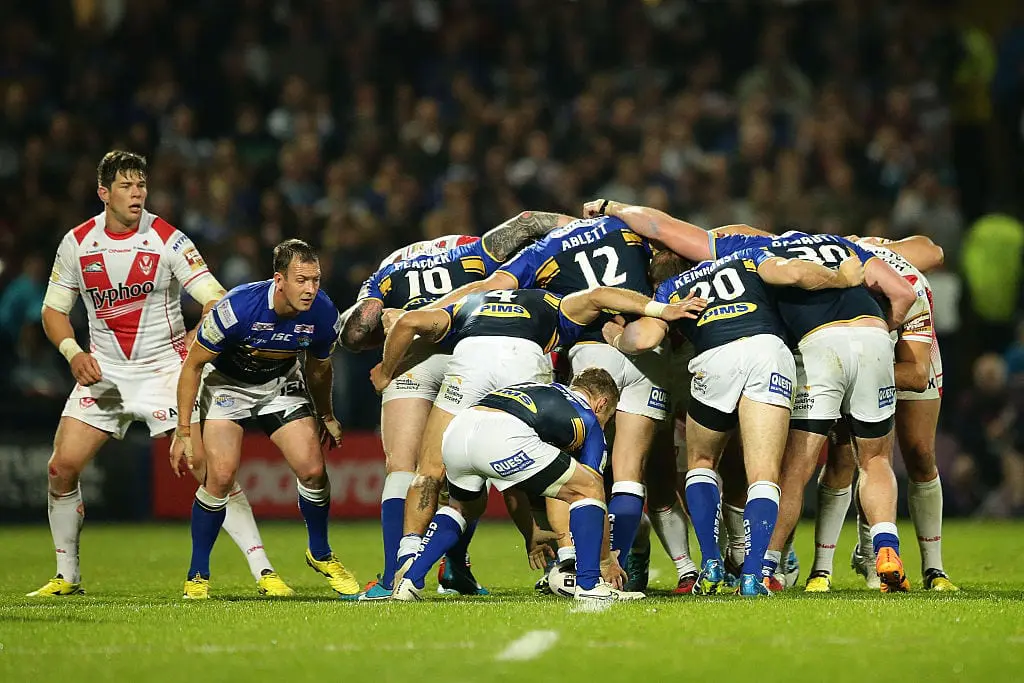
The use of NRL rules immediately favours Australia before a ball has been kicked.
Referees
Since the time of the late, great Bob Fulton coaching Australia in the 1989 – 1998 period, Australia has unfairly and illegitimately attacked the use of neutral referees. This began during the epic 1990 Ashes series in which Fulton used the media to place ridiculous pressure on the French referee Alain Sablayrolles.
Fulton essentially blamed Australia’s first Test loss at Wembley on the French referee, then proceeded to show this was a complete ruse by making a massive six changes to the starting line-up for the second Test at Old Trafford, Manchester – a game famously won by Australia in the dying seconds after captain Mal Meninga finished off a 90-metre Kangaroo try. Despite this being one of the greatest ever Test series in rugby league history, the mud thrown at neutral referees by Australia stuck.
Since that time, Australia has manipulated its power to have Australian referees appointed to games in which they have been involved, at the expense of neutral referees, wherever possible. The greatest example of this came in the 2017 World Cup final and semi-final when Australian Gerard Sutton was selected as the referee despite Australia playing both games.
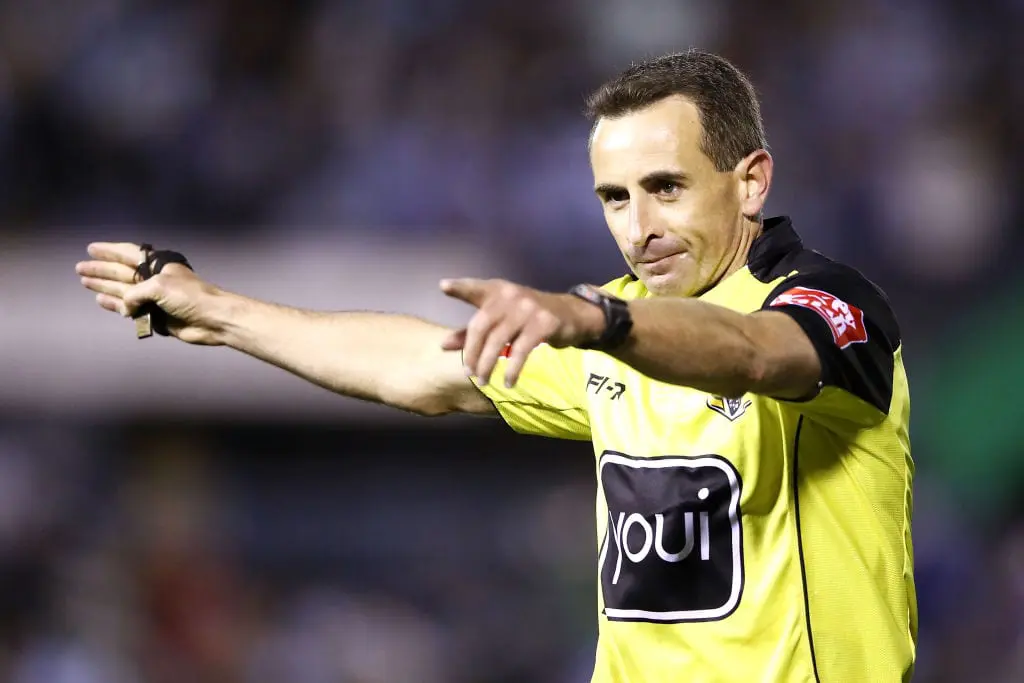
This frankly is beyond the pale. The 2021 World Cup organisers have insisted on neutral referees, which is a welcome (and rare) occasion of the IRL standing up to Australia on this issue.
Venues
This was most apparent during the former Anzac Tests which were played in Australia 17 times out of 20 games since 1997, compared to in New Zealand on merely three occasions. It is clear that whenever possible, Australia’s strategy is to insist on home ground advantage. If this doesn't occur, it seems Australia's preference is simply not to play at all. The result of this agenda has been that Australia has played a grand total of only four internationals since the 2017 World Cup staged in Australia.
Home advantage, particularly when combined with a home referee, results in only one outcome viewed objectively – a totally unfair advantage to the team playing at home with the local referee. This however has been the status quo sought by Australian rugby league now for some time.
Currently, the only established exception to this state of affairs is the playing of a non-Australian World Cup. It is no surprise to see that NRL clubs and Australian rugby league are so resistant to playing the World Cup overseas this time. Again, they should be forced to release players to do so or face bans for future tournaments organised by the IRL.
Availability of players for Australia
This is one of the more insidious ways in which Australia continues to pressure the ongoing development and look of international rugby league.
At the moment, players who are eligible to play for tier two nations including Tonga, Samoa, Fiji and Papua New Guinea, are often obtained by Australia, supposedly inadvertently, by performing exceptionally well on the State of Origin stage. Currently, international players from tier 2 nations can play in State of Origin if they meet certain eligibility criteria. This has resulted in a vast array of such players turning out in the 2021 State of Origin series – Brian To’o, Jarome Luai, Xavier Coates, Junior Paulo, to name just a few.

Often when this situation has arisen in the past, Australia has placed enormous pressure on players who succeed at Origin level to turn out for Australia and not their heritage nation (such as Akuila Uate and Fiji, or Semi Radradra being convinced to turn out for Australia in 2016). This has already commenced in 2021 with Australian coach Mal Meninga approaching NSW five-eighth Luai to change allegiance from Samoa to Australia.
This has essentially allowed Australia to vacuum up dual heritage players through the domestic lure of State of Origin. Pressure continues to mount within Australia for tier one players (ie. those from New Zealand and England) to also be permitted to play Origin. This would again run the risk of those players turning out for Australia to the benefit of that international side and to the deficit of its primary competitors, New Zealand and England. This pressure must be resisted for the good of the game.
Non-availability of players for other countries
Since the days of Canterbury’s star Kiwi winger Matt Utai suffering “injuries” immediately before international competition for New Zealand to Steven Kearney regularly being suspended for international games by the NRL judiciary before pulling on the Kiwi jersey, Australia has found a number of ways to ensure the non-availability of dangerous players from other countries.
The role of NRL clubs in this cannot be understated. Australia has actively utilised its strength through the NRL to pressure players not to make themselves available for other countries, thereby weakening the strength of other nations (often under the guise of injury). In contrast, few obstacles are generally placed in front of NRL players turning out for Australia.
It was essentially this same pressure that brought the Denver Test concept to a shuddering halt, as NRL clubs threatened to refuse to release English and Kiwi players for future games in the USA - despite rugby league attracting a crowd of almost 20,000 in heartland America.
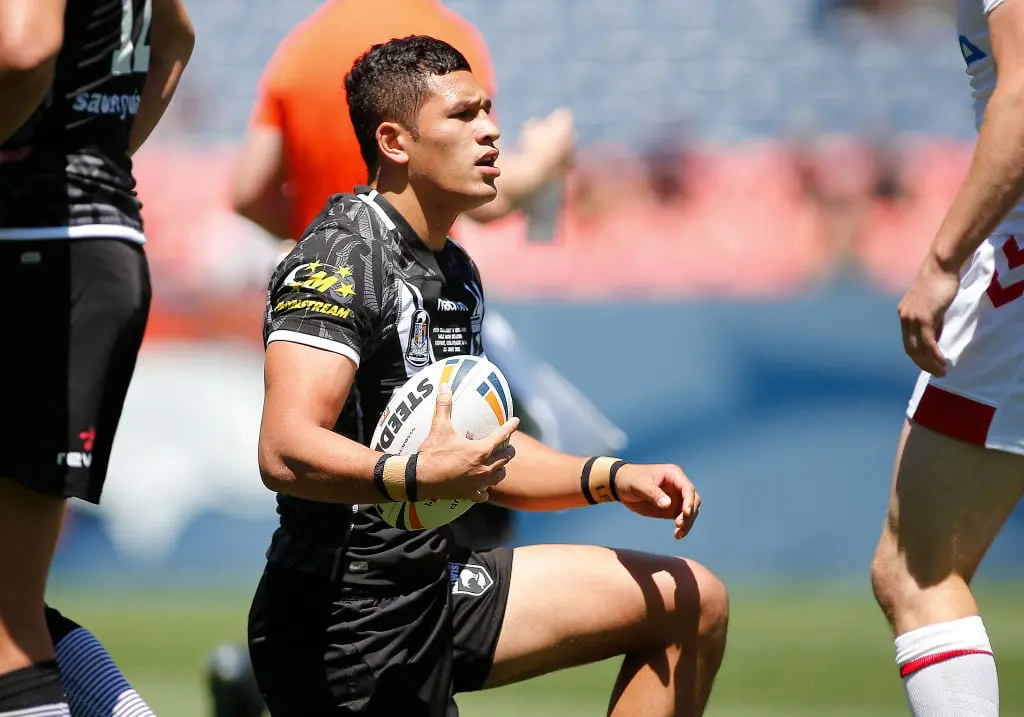
Timing of games and preparation time
The current pressure being applied by NRL clubs to defer the World Cup for one year, not because of COVID, but because of the impact on pre-season training for the 2022 NRL competition shows the deliberately harmful effect NRL clubs can have on international rugby league competition.
Australia has previously manipulated the timing of games such that the annual ANZAC Test was reduced to a yearly Kiwi ambush. The Kiwis had shown that given the opportunity to prepare for tournaments, they were world-class. This was shown in results such as the 2005 Tri-Nations, 2008 World Cup and 2010 and 2014 Four Nations, all won by New Zealand.
Due to the inbuilt cohesion acquired through regular NRL games together and particularly through the concentration of Australian talent into two teams for the State of Origin contest, Australia needs limited preparation time prior to a major tournament such as a World Cup.
Australia’s preference is always to meet the Kiwis on Australian turf with limited preparation for the New Zealand side. This maximises Australia’s chances in what have been very much 50/50 games since 2005.
The same policy is sought to be applied to any other country which threatens Australia’s dominance.
Isolation
As mentioned previously, Australia’s continued isolation from international rugby league actually benefits it in numerous ways.
Smaller nations, usually drawing their players from more disparate competitions including the European Super League, English Championship rugby league, French Elite 1, NZ domestic competitions, or QLD and NSW based second-tier competitions (as well as the NRL), require greater time together to prepare and develop the cohesion the Australian team can often take for granted.
Accordingly, the playing of fewer international games suits Australia and works against the other international teams. This includes England who are now placing a greater reliance on NRL based players than previously. Cohesion between players from each hemisphere is therefore critical to England’s chances in a major tournament. This is hard to achieve when there is a dearth of international tournaments in which to develop this cohesion.
The policy of isolation itself seems extraordinary when viewed in a historical context. The 1946 British Lions rugby league team took one whole month to sail to Australia, by way of military transport (the aircraft carrier Indomitable), just to play the Ashes series in Australia. It would not have occurred at all but for the direct pleas of the Australian government to the English House of Commons. The desperation to re-start international football was palpable.
Now at times, it seems Australia could not care less whether the international institutions of the game are preserved or not.
The role of media
Australia’s attitude towards the international game is to a large extent dictated by the Australian rugby league media, who have gone out of their way to largely denigrate international football vehemently since (at least) the 1988 British Lions tour, when an excellent British side was openly castigated and ridiculed well prior to the arrival of the tourists in Australia.
This resulted, together with particular issues relating to the cost and structure of the new Sydney Football Stadium, in a poorly attended Ashes series, despite the fact game 1 (won by Australia 13-6) and game 3 (won by Great Britain 26-12), both in Sydney, were titanic contests. The improvement in Britain under new British coach, Mal Reilly, was scarcely acknowledged until after Australia lost the Third Test.
Other examples include the general failure of the Australian media to appreciate the quality of the 2013 World Cup semi-final between England and New Zealand (one of the all-time great international matches), and the failure to acknowledge the closeness of the 2017 World Cup Final, a game perhaps solely dictated by the single moment of a Josh Dugan ankle tap on a flying Kallum Watkins.
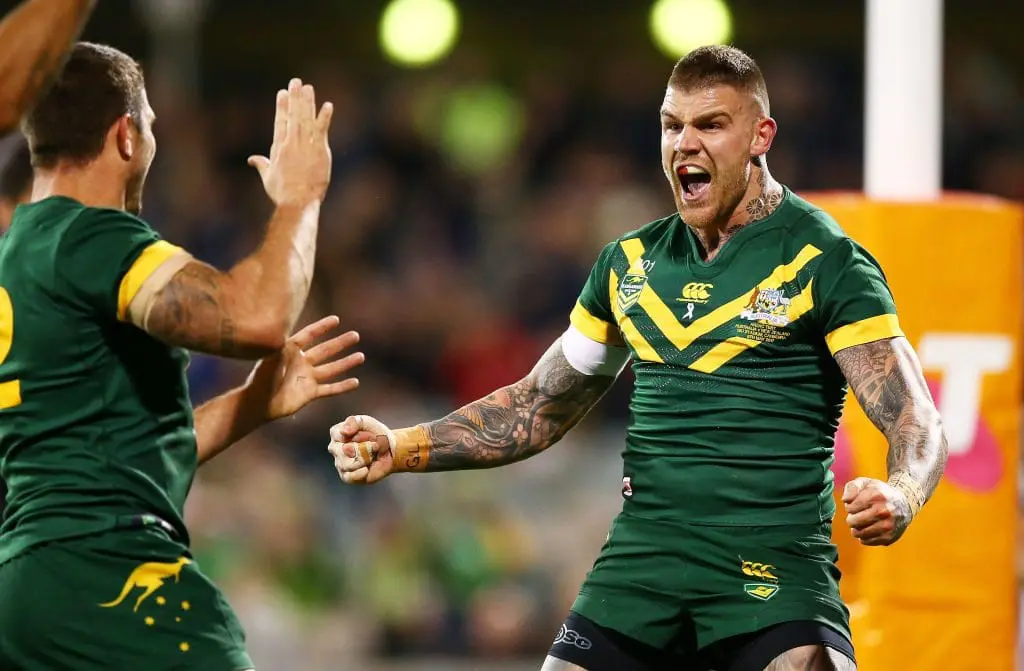
The 2021 World Cup has been essentially ignored by domestic Australian rugby league media. Whereas any other sport in the world would trumpet the superb skills of Fiji’s Viliame Kikau in the NRL and segue that into a discussion of the end of year World Cup tournament, such comments scarcely exist in Australian rugby league.
The immense form of Penrith players like To’o and Luai is discussed in the context of improving NSW’s Origin chances against Queensland, not Samoa’s emerging chances for the World Cup in the very same year.
The NSW coach talks more about the Wallabies than the Kangaroos, despite the fact he was the youngest ever Kangaroo tourist himself in 1990. The ridiculousness of that situation would not be countenanced in any other sport.
The continued misinformed criticisms of international rugby league by Australian media actively limit the international game reaching its true potential around the world.
Control of the IRL
Due to Australia’s economic domination of the IRL, it has the means and gravitas to essentially force policy benefiting Australia through the international body at will. This is evidentced most recently by the slavish adoption of the six again rule by the IRL without sufficient debate about its effectiveness in the NRL.
In this way, Australia can codify its strength in international rugby league and resist challengers to its continued domination.
Structure of international competitions
One of rugby league’s real international strengths for the vast bulk of the 20th Century was the regular and consistent playing of Test series. From the time of the first British Lions tour to Australia in 1910 through to the Super League War of the mid-1990s, rugby league played regular three test series against Great Britain, New Zealand and France, essentially in four-year cycles.
This enabled Australia’s opposition to improve by regularly competing against them.
By abandoning this established program of international competition, mainly at the behest of Australia and the NRL clubs, Australia does two things. It firstly prevents the natural improvement of other nations which occur through the established international program. Secondly, it preserves Australia’s historical domination of the international game, essentially since the mid-1970s, by not providing opportunities for international teams to challenge this record.
It remains extremely difficult for any other nation to defeat Australia in a three-Test series when they basically refuses to play in them.
The path forward?
Whether Australia likes it or not, by virtue of the fact that the strongest league in the world, the NRL, is based in Australia, many of the world’s best rugby league players will participate in that competition. Australia, therefore, has a duty to the rest of the rugby league world to actively promote the international game and to move it forward.
The chief obstacle to this occurring would seem to be Australia’s wish to maintain its position of hegemony in the international game at the expense of its overall development.
The quality of the future of international rugby league will largely be determined by the extent to which the IRL can, in coming years, sever this nexus and insist that Australia work in favour of the global game, rather than against it.























